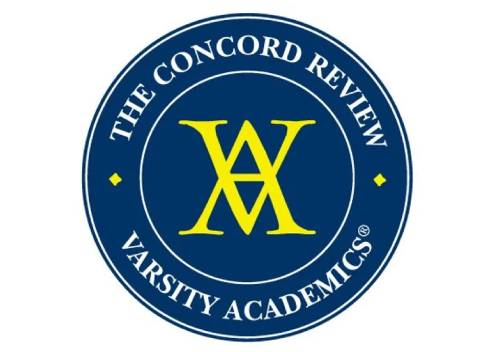Need-blind Universities for International Students
In the context of increasingly high tuition fees in the United States, for applicants who want to sprint to prestigious schools but are financially limited, Need-Blind (an admission policy that ignores the ability to pay, that is, an admission policy that does not consider the ability to pay) can not only ensure the fairness of the entire admission process, but also provide financial support for applicants to attend college in the future.
Recently, Brown University announced that it will implement a Need-Blind admission policy for international students starting with the fall 2025 admissions season! Next, let's take a look at the top universities that offer Need-Blind policies for international students?
What is a Need-Blind policy?

In terms of financial ability, the "affordability-ignoring" admission policy basically provides applicants with a level playing field. This is important for international students because universities do not review your ability to pay tuition when making admission decisions, which means that regardless of the applicant's financial situation, they have equal admission opportunities. Such a policy requires universities to have sufficient endowments or other sources of funds to meet all the financial needs of admitted students, thereby ensuring fairness in educational opportunities. Therefore, "affordability-blind" admissions policies not only help eliminate financial barriers and allow more outstanding applicants to have access to higher education, but also reflect the commitment of higher education institutions to social justice and fairness.
It is important to note that "affordability-blind" admissions policies are not equivalent to "fulfilling all needs" financial aid policies. Some universities may ignore affordability when admitting students, but fail to meet all reasonable needs of students during their time at school when providing financial aid. Therefore, when choosing a school, applicants should understand the university's financial aid policy and ensure that it can meet their financial needs.
Factors to consider when choosing a Need-Blind University

1. As an international student, there are several things to consider when choosing a university with a Need-Blind policy.
Is this university a good fit for you? Consider all aspects of the school, such as campus culture, school location, financial aid policy, academic standards, courses offered, etc. Make sure your application makes you an ideal candidate for the university.
2. Thoroughly understand the university's admissions website and policies. Make sure you understand all the details of the school's admissions policy and how committed they are to their financial aid program. Most schools have admissions and financial aid officers willing to answer questions from potential international students.
3. Make use of college financial need and tuition calculators. Most schools have tuition calculators on their websites for public use, and you should use these calculators to calculate the estimated costs of attending school as an international student.
4. Be vigilant about changes in "disregarding ability to pay" policies. Colleges are constantly making decisions to increase or decrease policies based on financial planning needs. Some schools may choose to change their admissions policies, so it is important to check the admissions website frequently.
5. Compare the financial aid packages of "disregarding ability to pay" schools and schools that consider need. Compare the financial aid packages you receive at each type of school to see which school is the best choice for you academically and financially.
What are the types of need-blind financial aid policies?
Although schools that adopt need-blind do not consider students' financial ability, not all schools that do not consider financial ability guarantee to meet students' financial needs 100%. In most universities, there are usually three policies used to determine financial aid, which are:
1. Full-Need, No Loans, the university promises to meet 100% of the student's reasonable financial needs, that is, the school will pay the difference between the cost of attendance and the cost of what you and your family can afford.
2. Full-Need, Some Loans, some universities claim that they meet the full reasonable financial needs of students, but your financial aid package may include student loans that you must repay.
3. No Guarantee: These universities will admit you based on standardized test scores and GPA, but cannot guarantee to meet your full financial needs.
8 Need-blind Universities for International Students

So far, there are only 8 schools that offer Need-Blind admissions policies for international students, namely: Princeton University, Harvard University, Massachusetts Institute of Technology, Yale University, Brown University, Dartmouth College, Amherst College, Bowdoin College.
Princeton University
Princeton's financial aid is only awarded based on need, and there are no honor scholarships. They only consider the talent and achievements of applicants when admitting them. Need for financial aid is determined by carefully reviewing each family's individual financial situation. Each admitted student's financial aid application receives individual attention, and special circumstances and professional judgment are taken into account when determining financial aid. The full need of each admitted student is met through financial aid.
For details, please see Princeton University's official website
Harvard University
If you are a student at Harvard, you will not be at a disadvantage in any way, even if you come from a low-income family. When applying, "your financial need and financial aid application will never affect your chances of being admitted to Harvard," the admissions website states. They also award basic aid based on need, not on merit. For families with an annual income of less than $85,000, the cost of attending Harvard College (including tuition, room, board, and fees) is free, and in fact, nearly 25% of undergraduates come from families with an annual income of less than $85,000.
For details, please see Harvard University's official website
Massachusetts Institute of Technology
About 6 out of 10 applicants receive financial aid from MIT. In the 2022-2023 academic year, the median annual cost for undergraduates who receive MIT School of Engineering scholarships is $12,715. For most applicants whose family income is less than $140,000 per year, the university ensures that scholarship funding will enable them to attend MIT for free.
For details, please visit the MIT website
Yale University
Similar to Harvard, Yale has a need-free admission policy for all applicants. Undergraduate applicants are admitted without considering their ability to pay, and the university provides need-based financial aid awards to all admitted students based on individual need assessments. Families with a total income of less than $75,000 do not need to provide financial aid for their children's Yale education; families with an annual income between $75,000 and $200,000 will use a certain percentage of their annual income for their children's Yale education, ranging from 1% to 20%. There is no income limit for grants, and some families with an annual income of more than $200,000 can receive grants from Yale.
For details, please visit the Yale University website
Brown University
Thanks to the generosity of many donors, Brown quickly reached its fundraising goal of $120 million and successfully achieved its goal of making international students benefit from the policy of admission regardless of payment ability.
After the policy is implemented for international freshmen entering the class of 2029, Brown will rely on the continued donations of donors to continue to raise $100 million to make the policy a permanent guarantee. Brown University President Christina Paxson said that this move will become part of the school's continued commitment to recruit the best students (regardless of their ability to pay tuition) and ensure a sustainable financial aid guarantee plan for future generations.
For details, please visit the official website of Brown University
Dartmouth College
Dartmouth announced in early 2022 that it would expand its long-standing admissions policy regardless of student needs to recruit international students. This achievement will further strengthen Dartmouth College's ability to recruit talented undergraduates from around the world. Dartmouth offers need-blind admission to all undergraduate applicants while meeting 100% of demonstrated reasonable need, regardless of nationality.
For details, please see Dartmouth College's official website
Amherst College
Amherst's admission process is need-blind, whether domestic or international. The university recruits outstanding students from all over the world, and then makes every effort to ensure that each of them can afford to attend Amherst. The university meets 100% of students' reasonable financial needs for domestic and international students. If admitted to Amherst, you will receive financial aid equal to your financial need through a combination of scholarships and work opportunities.
For details, please see Amherst College's official website
Bowdoin College
Bowdoin announced in July 2022 that it would expand its need-blind admissions policy to recruit international students, one of many steps the college has taken over the past decade to eliminate barriers for students. “Ensuring access to a Bowdoin education is at the core of our mission. Our commitment to need-blind admissions for international applicants is another important component of an amazing program that offers access and affordability that only a few other colleges and universities can offer,” said Bowdoin President Clayton Ross. ”
For details, please visit Bowdoin College’s official website
The application for US colleges is becoming more and more exciting, especially for these need-blind universities, which are the prestigious schools pursued by many international students. If you want to successfully apply for these schools, you must plan early.
Embark is an educational institution focusing on customized scientific research training for teenagers. The core team members are all masters and doctoral graduates from prestigious American universities. Through customized scientific research training, they have guided students to win nearly a thousand awards in major scientific research competitions around the world and successfully entered world-renowned universities such as Harvard, Stanford, Princeton, Oxford, and Cambridge. If you are interested in scientific research, you can learn about the Embark Exploration Program, where you will conduct one-on-one academic projects with expert mentors from world-renowned universities. If you are interested in Prestigious STEM Competitions, you will receive guidance from Embark’s mentors with a strong academic background, leading you to achieve good results in international competitions and gain a stepping stone to enter Ivy League schools. For more detailed information, please consult Embark.



